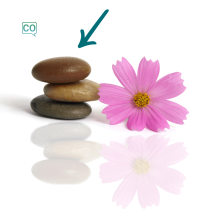Duro: Hard (Spanish)
Duro (Hard): translations and example sentences for all genders and cases.

Adjetivos (Adjectives)
Level: A1
Module 4: Describir objetos y personas. (Describing objects and people)
Lesson 27: Sentidos y percepción (Senses and perceiving)
Examples
| Masculine | Feminine | |||
| Singular | Plural | Singular | Plural | |
| Base word |
Duro (hard) El queso está duro. (The cheese is hard.) |
Duros (hard) Los zapatos están duros. (The shoes are stiff.) |
Dura (hard) La galleta está dura. (The biscuit is hard.) |
Duras (hard) Las rocas están duras. (The rocks are hard.) |
| Comparative |
Más duro (harder) Este pan es más duro que ayer. (This bread is harder than yesterday.) |
Más duros (tougher) Estos zapatos son más duros que los otros. (These shoes are harder than the others.) |
Más dura (harder) Esta galleta es más dura que la otra. (This biscuit is harder than the other one.) |
Más duras (harder) Estas rocas son más duras que aquellas. (These rocks are harder than those.) |
| Superlative |
Durísimo (very hard) El pan está durísimo. (The bread is very hard.) |
Durísimos (very hard) Los caramelos están durísimos. (The sweets are very hard.) |
Durísima (very hard) La galleta está durísima. (The biscuit is very hard.) |
Durísimas (very hard) Las galletas están durísimas. (The cookies are very hard.) |
| Diminutive |
Durito (tough) El caramelo está durito. (The sweet is hard.) |
Duritos (hard) Los caramelos están duritos. (The sweets are hard.) |
Durita (hardness) La galleta está durita. (The biscuit is hard.) |
Duritas (hard) Las galletas están duritas. (The biscuits are hard.) |
| Augmentative |
Duron (hard) El hielo está duron. (The ice is hard.) |
Durones (hard ones) Los ladrillos están durones. (The bricks are hard.) |
Durona (hard) La mesa está durona. (The table is hard.) |
Duronas (hard) Las mesas están duronas. (The tables are hard.) |